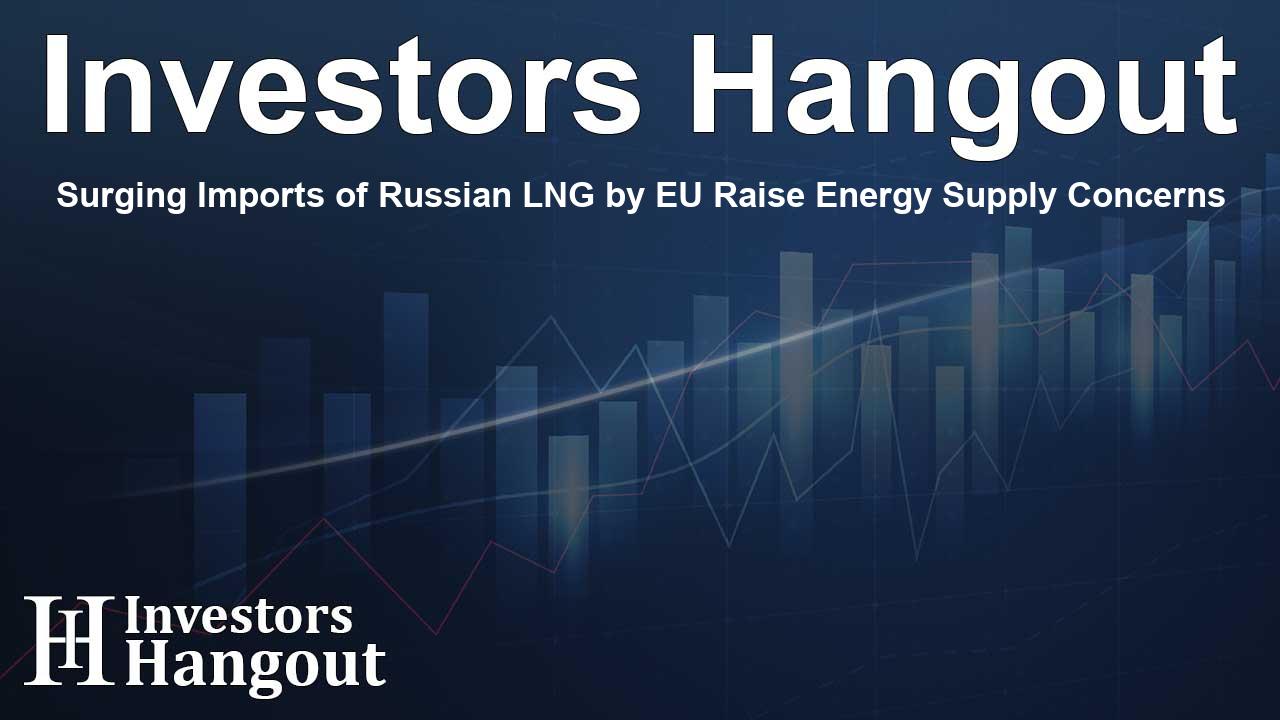Surging Imports of Russian LNG by EU Raise Energy Supply Concerns

Surging Imports of LNG from Russia
Recently, there has been a notable increase in liquefied natural gas (LNG) imports from Russia to the European Union (EU), according to industry reports. In the first half of January 2025, EU member states imported around 838,000 metric tons of LNG from Russia, marking a significant uptick from the approximately 760,000 tons imported during the same timeframe in the previous year. This trend highlights Europe’s ongoing dependence on Russian gas despite the various geopolitical challenges present.
Market Trends and Pricing Dynamics
Despite the lower European gas prices observed after the January spike, which had surpassed 50 euros per megawatt hour, concerns linger regarding dwindling inventories. The situation is exacerbated by supply uncertainties following a transit agreement expiration between Russia and Ukraine. These developments contribute to the volatile nature of gas pricing, impacting both consumers and industries across the continent.
Storage Levels: A Growing Concern
The current storage levels in the EU are reported to be approximately 63% full. However, the rate of decrease in these levels is alarming to analysts and policymakers alike, suggesting that sustained LNG imports are crucial for maintaining storage targets in the upcoming months. The reliance on imports raises questions about energy independence and the steps Europe might need to take moving forward to address its needs efficiently.
Shifting Energy Landscape in Europe
This increase in LNG imports sheds light on the shifting energy landscape within the EU. Member states are faced with the challenge of balancing their energy needs with the pressing issues of sustainability and energy transition. Finding alternative sources or enhancing domestic production becomes imperative as Europe navigates these significant transitions.
Impact on European Energy Policy
The increase in LNG imports from Russia emphasizes the EU's existing energy policy framework, which is under scrutiny given the current geopolitical context. Policymakers are continuously evaluating how to reduce dependence on Russian energy supplies while securing stable energy flows for the economy.
The Future of LNG in Europe
As the energy situation evolves, Europe’s approach to LNG sourcing will likely adapt. There is a growing emphasis on diversifying energy sources and enhancing renewable energy investments, but navigating this transition will require careful planning and execution to ensure energy security and price stability for consumers.
Frequently Asked Questions
What are the recent trends in LNG imports to the EU?
There has been a significant increase in LNG imports from Russia to the EU, with approximately 838,000 metric tons imported in early January 2025.
How do current gas prices compare with previous months?
European gas prices have seen a decrease from earlier highs, although they remain notably influenced by inventory levels and supply uncertainties.
What factors are influencing EU's energy supply?
Dwindling gas inventories and the expiration of transit agreements between Russia and Ukraine are key factors influencing energy supply stability in Europe.
What storage levels does the EU currently maintain?
The EU currently maintains storage levels at about 63% full, though this is decreasing at a rapid pace.
What steps is the EU taking for energy independence?
The EU is evaluating energy policies aimed at reducing dependence on Russian gas while seeking to diversify energy sourcing and enhance renewables.
About The Author
Contact Dylan Bailey privately here. Or send an email with ATTN: Dylan Bailey as the subject to contact@investorshangout.com.
About Investors Hangout
Investors Hangout is a leading online stock forum for financial discussion and learning, offering a wide range of free tools and resources. It draws in traders of all levels, who exchange market knowledge, investigate trading tactics, and keep an eye on industry developments in real time. Featuring financial articles, stock message boards, quotes, charts, company profiles, and live news updates. Through cooperative learning and a wealth of informational resources, it helps users from novices creating their first portfolios to experts honing their techniques. Join Investors Hangout today: https://investorshangout.com/
The content of this article is based on factual, publicly available information and does not represent legal, financial, or investment advice. Investors Hangout does not offer financial advice, and the author is not a licensed financial advisor. Consult a qualified advisor before making any financial or investment decisions based on this article. This article should not be considered advice to purchase, sell, or hold any securities or other investments. If any of the material provided here is inaccurate, please contact us for corrections.
